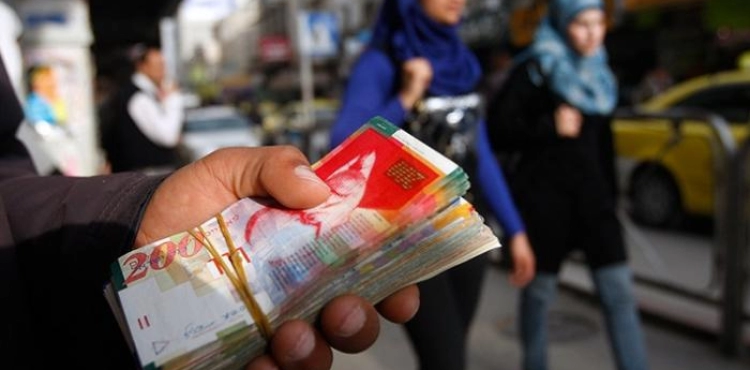Economists have agreed that the advancement of the Palestinian economy requires facing the restrictions imposed by the occupation.
This came during an economic workshop, organized by the Public Policy Institute in Ramallah, today, Wednesday, via the Zoom platform, under the title “The Palestinian Economy between Reality and Ambition,” with the participation of the Undersecretary of the Ministry of National Economy, Manal Farhan, and Director of Programs at the Friedrich Ebert Foundation. The German Nidal Al-Issa, and the representative of the “Job Opportunity Creation in the Southern Governorates” program, Jihad Sharaf. Friedrich Ebert.” Rasmus Brandt.
The workshop dealt with the government´s economic strategy, its most important policies and the facts on the ground, its tools to overcome obstacles, economic disintegration and food security.
Farhan pointed to the role of the Israeli occupation in impeding the growth of the Palestinian economy, which led to structural distortions in many sectors.
She indicated that the productive sectors suffer greatly as a result of Israeli practices, as evidenced by the presence of more than 600 checkpoints and barriers in the West Bank, explaining that despite the occupation´s measures, the National Authority has put in place many economic policies, focusing on the industrial and agricultural sectors.
She also pointed to the government´s contribution to supporting the national product, as two steering and technical committees were formed for this purpose, adding that the ministry focuses through its policies on women´s economic empowerment.
Farhan touched on the government´s interest in the issue of economic independence, and in reducing the percentage of imports from Israel, which decreased from 70% to 55%, due to official efforts to promote direct imports and diversify sources of imports, stressing that upgrading the Palestinian economy requires in one aspect controlling the crossings.
For his part, Al-Issa said that achieving disengagement from the occupation economy, whether gradual or by opening an economic battle, requires the availability of several elements, such as controlling the crossings.
He pointed to the impact of the Paris Economic Protocol on the reality of the Palestinian economy.
In turn, Sharaf stressed that the "Job Creation in the Southern Governorates" program adopts the strategy of transforming relief projects and aid into development programs, and focuses on creating job opportunities and achieving food security, pointing to the importance of the agricultural sector on the economic level.
He pointed out, in his intervention from the Gaza Strip, that more than 80% of the population of the Strip live below the poverty line, while the unemployment rate among the youth category has risen to 70%.
Sharaf attributed the increase in food insecurity rates in the Gaza Strip to the inability of individuals and families within the sector to secure their needs.












